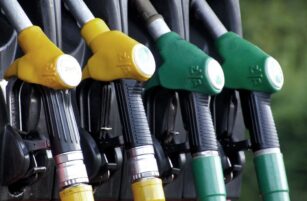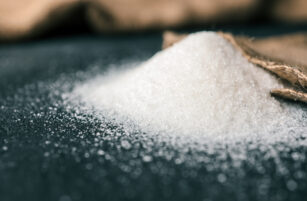- The global sugar surplus for 2021/22 has increased to 4m tonnes.
- India’s stronger-than-expected cane crop has driven this increase.
- 2022/23, however, will see almost a 3m tonne deficit.
Global Sugar Supply
We now think the world will produce 4m tonnes more sugar than it needs to satisfy demand in 2021/22, up 1m tonnes from our January update.
This will not be the case in 2022/23, as production should fall 2.8m tonnes short of consumption instead.
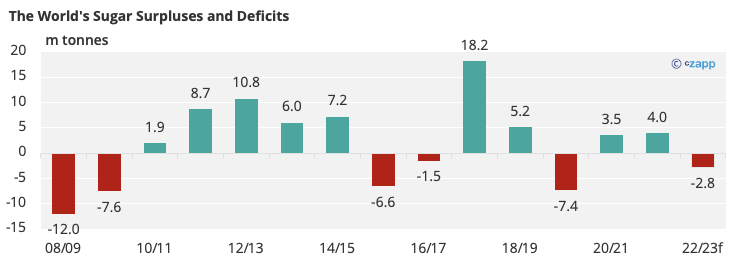
Global Sugar Production
The world should produce 177.8m tonnes of sugar in 2021/22, up 900k tonnes from our previous estimate as our Indian production forecast has increased.
If this materialises, it’ll be the world’s second-highest production on record, though well short of the 188m tonnes produced in 2017/18.
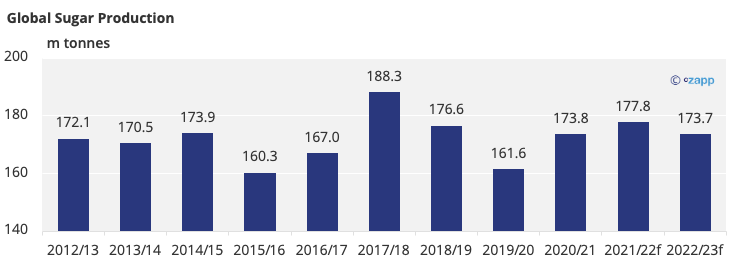
Global Sugar Consumption
We think the world will consume 173.7m tonnes of sugar in 2021/22, down 100k tonnes from our January update, widening the surplus further.
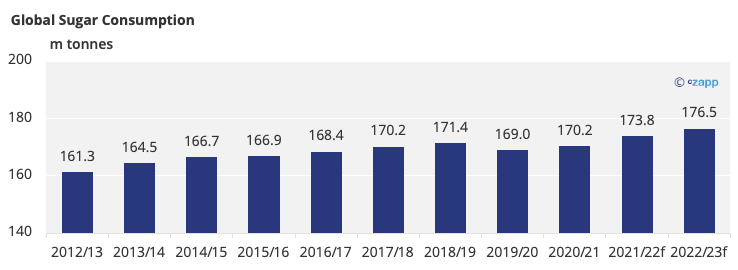
Regional Production

Regional Updates
China should produce 10m tonnes of sugar in 2021/22, down nearly 700k tonnes year-on-year.
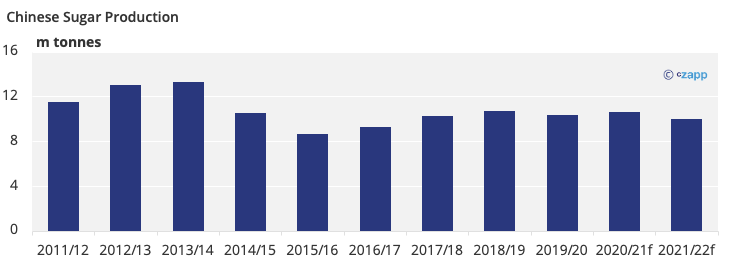
In the north, beet area has dropped as competition from corn and potato has intensified. Meanwhile, in the south, a cold and wet harvest prompted disappointing sucrose yields, and hindered cane development and harvesting.
If you have any questions, please get in touch with us at will@czapp.com
Other Insights That May Be of Interest…
Sugar Statshot: Behind the Data
Market View: Negative Sentiment Grows as Specs Add to Short
Explainers That May Be of Interest…


